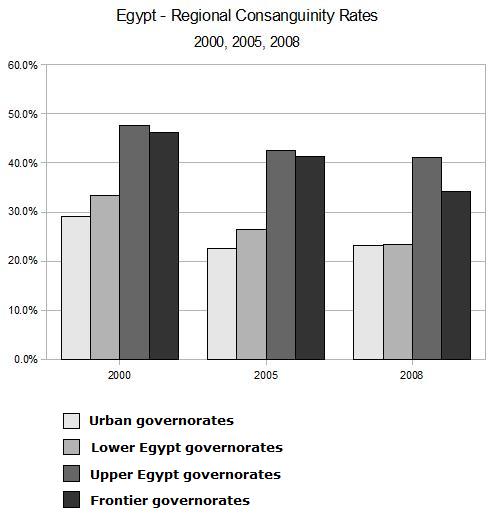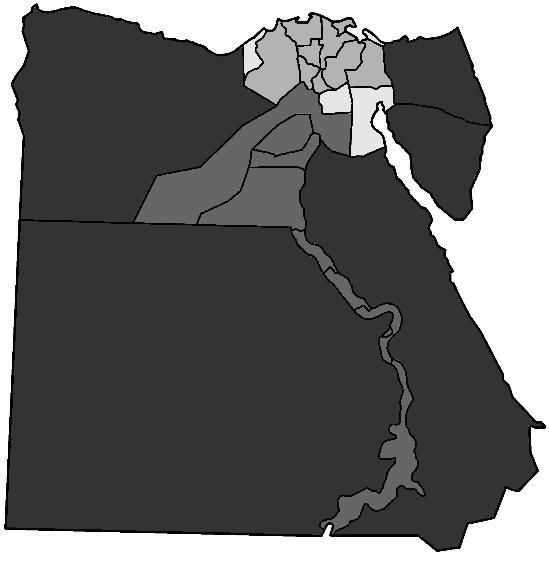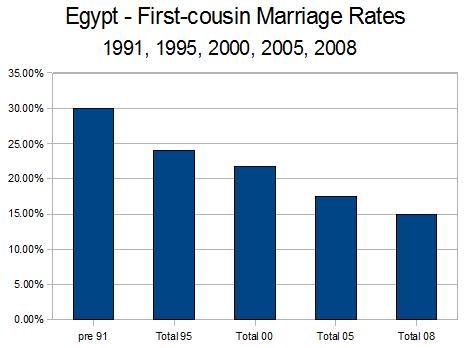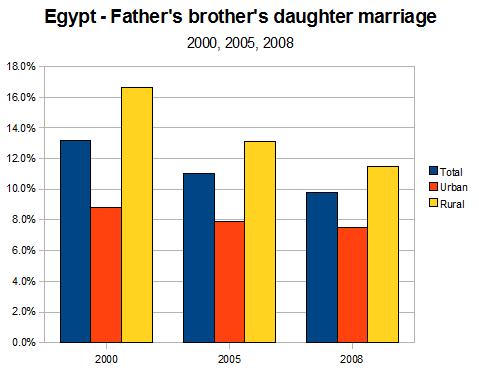so the elections are underway in egypt. i wish them luck (i really mean that!).
i quoted this article (now behind a paywall) once before, mostly ’cause i thought the guy being interviewed was pretty funny:
Key Clans Hold Sway in Egypt Elections
“TOMIYA, Egypt — In this rural hamlet 100 miles southwest of Cairo, farmers turn their fields with ox-pulled plows and ferry their daily harvest to market on carts pulled by swaybacked donkeys. Nine months after the ouster of Hosni Mubarak, this village’s politics remain similarly stuck in a previous era.
“Here, as in much of rural Egypt, two political forces appear poised to dominate Monday’s parliamentary vote, just as they have for much of the past century: the Muslim Brotherhood and a small clique of powerful families, feudal landowners with longstanding ties to the former ruling party and security services….
‘Tribe, family, and religion — this is how people vote here,’ said Micheil Fayek, a candidate in Fayoum governorate, which includes Tomiya, for the liberal-leaning, but pro-military Wafd Party….
“At sunset, on the eve of Monday’s vote, a group of local farmers sat sucking on a water pipe on the roadside near Tomiya. Asked what they thought of their local candidates, they named the Muslim Brotherhood candidates and, like everyone here, candidate Yussuf Abu Talab, whose father and grandfather have represented the district in parliament for as long as anyone can remember. The rest of the ballot was a mystery to them.
“‘Abu Talab’s father was very powerful, anything you needed, he would give you,’ said one of the farmers, Taha Abu Shaaban, 40 years old. ‘He was in the ruling party, but the people loved him….’
“The likes of Mr. Abu Talab, whose family owns the vast swaths of farmland these men all toil each day, are old political hands, masters of Egypt’s rough and tumble and often corrupt electoral politics. Mr. Abu Talab couldn’t be reached for comment. But Moataz Mahmoud, the head of the Hurriya (Freedom) Party he is running with said that such well-known figures such as Mr. Talab around Egypt are expected to win seats because they have a long history of looking after their constituents.
“Though these elections look poised to be freer and fairer than past Egyptian elections, the same dirty tricks that have been fixtures of past elections are already evident.
“Mr. Fayek, the Wafd Party candidate, said he has been approached by a number of paid vote bundlers who muster a chunk of guaranteed votes in exchange for cash. In Fayoum, Mr. Fayek said he had received offers from such hustlers to sell 1,000 vote bundles for between LE50 and LE100 ($10 and $20) a vote, with results guaranteed by cell phone pictures of the checked ballot snapped by each voter inside the voting booth.
“That the Muslim Brotherhood is expected to make a strong showing in these elections has never been in doubt. But the role of these powerful families has received comparatively little attention and could end up being a strong and unpredictable force in the next parliament, giving it a more counterrevolutionary hue than many democracy activists hoped….
“‘Egyptian Election is based on individuals with strong tribal and family connections rather than on ideologies or programs of parties, and the only exception to this is the Islamist voters,’ said Mr. Mahmoud, the head of the Hurriya Party, which includes ex-Mubarak regime members from around the country and who is also a candidate from a prominent family from southern Egypt. ‘It doesn’t it matter if I was a part of the ruling regime. Even if I was a member of the Israeli Likud, I would still win.’”
_____
see? funny. (^_^)
here’s how elections and voting normally work in clannish egypt (although i’m not sure how applicable this is to the presidential voting that they’re doing today in egypt — the following is more about how parliamentarian elections work). from Development and Social Change in Rural Egypt [pgs. 150, 151-54]:
“The unequal distribution of economic resources in the El-Diblah district [pseudonymous district representative of upper or southern egypt] means that political relations in the area are dominated by one type of relationship: the patron-client relationship. Rich peasant patrons, who own over ten feddans of land, remain the principal source of employment, credit and brokerage services for the large number of poor peasants in the district. To be sure, the gradual reduction in the size of rich peasant landholdings means that many wealthy patrons no longer possess the monopoly of resources needed to permanently support their poor peasant clients. In most cases poor peasants seeking wage labor must now circulate between several rich patrons in order to survive. Yet the majority of these poor peasants still look to one particular wealthy patron for brokerage and intercessionary services with the government. By effectively mediating the demands of their poor peasant clients with the outside political world, rich peasant patrons can dominate political life at the local level….
“It is possible to examine the local-level powers wielded by rich peasant patrons like Zaghlul in terms of two broad patterns of political dynamics. These two patterns related to the ‘big-man small-boy’ syndrome identified by Robert Price in his analysis of political culture in Ghana. Price draws a sharp distinction between big men and small boys: ‘Big men are those of social weight, worth and responsibility; while small boys are, like children, of little consequence in the affairs of the community. Big men are expected to make decisions, give orders and look after the material well-being of their social inferiors. In turn, small boys are expected to exhibit unquestioning obedience and obsequious public deference toward big men’ (1974: 175).
“While villagers in the El-Dibah district do not explicitly differentiate between big men and small boys, these two terms bear a striking resemblance to the actual manner in which they view political reality. Villagers expect aspiring political leaders to seek positions in accordance with their acknowledged social status and worth. This means that rich peasant patrons or big men seek positions at the upper levels of Egyptian government, especially in the National Assembly. However, small peasants or small boys, who are the obsequious clients of big men, serve on the relatively insignificant elected councils that have been created in recent years at the village, district and governorate levels….
“The whole modus operandi of National Assembly (Parliamentary) elections favors the selection of big men. For example, a total of ten candidates participated in the 1979 parliamentary election in the El-Diblah district. According to informants, only three of these candidates were ‘serious’ contenders for the two paliamentary seats from the district. Two of these candidates were prominent rich peasants; the third was the scion of a leading extended family in the area. During the weeks immediately preceding the election these candidates did absolutely no public campaigning. The only campaigning that occurred took place between the big men themselves. The leading candidates, and their supporters, spent most of their time visiting village headmen and extended family leaders in the area. In the words of one local politico, ‘No one spends much time distributing campaign material around here because not all that many villagers can read. Most of the muwazzafin will vote for the [government] party candidates, while the fellahin who vote will vote as their ‘umdas and family leaders tell them to.’
“In the El-Diblah district a successful paliamentary candidate typically campaigns by distributing ‘vote money’ to the headmen of smaller villages, and to the heads of leading extended families in larger areas. Depending on the financial resources of the candidate, a village headman or family leader may receive between £E100 and £E400 (U.S. $143 and $572 [in 1986, h. chick]). These rich peasant leaders are then expected to distribute their vote money among the client members of their village or family unit in order to deliver as many votes as possible to the candidate.
“The practical dynamics of this method of campaigning can be seen by referring to the case history of ‘Ahmed,’ one of the successful candidates in the 1979 parliamentary election in El-Diblah. In the eyes of most villagers, Ahmed is the personification of a big man. His family owns about 90 feddans of land, including the largest grape vineyard in the area. His father served in the Egyptian Parliament in the 1950s, and Ahmed himself has represented the El-Diblah district in the National Assembly for the past 12 years. Ahmed’s brother is the headman of a key village in the district, and he is also related by marriage to several other headmen in the area. Thus, at election time Ahmed does not need to distribute vote money to many local village headmen since they are expected, on the basis of kinship ties, to deliver the votes of their villages to him. During the last couple of parliamentary elections, however, Ahmed has given ‘vote money’ to two of the four family leaders in the village of El-Diblah. These family leaders have responded by delivering to Ahmed the votes of their extended family units. The staunch opposition of other family leaders in the village of El-Diblah presents Ahmed with no particular problem. While women in the area have the right to vote, but rarely exercise it, Ahmed has seen to it that all of the women in his village are registered to vote. Since women here vote as their husbands do, through this little strategem Ahmed has been able to effectively ‘double’ his vote output, and so to overcome the opposition of certain family leaders in El-Diblah.
“To many poor peasants Ahmed’s conspicuous use of ‘vote money’ during parliamentary elections serves only to confirm his status as a big man. Egyptian peasants expect such a demonstration of big-man worth during parliamentary campaigns, because they widely suspect that the main motivation for seeking such a leadership post is that of personal gain. Peasants believe that big men such as Ahmed have achieved their wealth and prominence by one of two means, inheritance or theft. While the fellahin find theft reprehensible, they do not find it completely intolerable as long as the personal aggrandizement of their elected officials provides them with an occasional share of the spoils.
“In Ahmed’s case service in the National Assembly has indeed provided peasants with what may be termed a ‘politics of largesse’ (Hyden 1980: 90). While his powers at the national level are quite circumscribed, at the local level Ahmed has become an effective ‘gatekeeper’ over the flow of national resources into his district. He has, for example, played an important role in determining the location of certain social services in the area: schools, warehouses and consumer cooperatives. Through this process Ahmed has been able to reward his followers through the creation of new jobs, new titles, and perhaps most importantly, new means of graft. In El-Diblah, as well as other rural areas, easy access to government warehouses and cooperatives provides villagers with the chance to purchase (or pilfer) those government-subsidized products (for example, wood, iron, meat) that can be sold for a handsome profit on the black market.”
_____
any and all analyses of the egyptian political situation that you (we) get via western newspapers and media sources will be seriously lacking in insight if they don’t take into account the role of extended families and clans at really every level of egyptian society including the political. and they don’t usually include this, so we really don’t understand what the h*ck is happening there.
here are a few more tidbits about voting patterns and clans in egypt:
Onetime Mubarak foes move closer to power as Egyptians vote again
January 03, 2012
“There were indications in some provinces, especially in tribal areas, that former members of Mubarak’s ruling National Democratic Party might win a number of seats. The party has been disbanded but its onetime members have benefited from clan and family allegiances that heavily influence voting preferences….”
_____
Egypt votes in third round of elections
03 Jan 2012
“‘Overwhelmingly we are hearing people tell us that they will be voting for the Salafi Nour party or the Ikhwan, the Muslim Brotherhood’s party Freedom and Justice, so it’s very much a lot of grassroots support for the Islamist parties here,’ Al Jazeera’s Sherine Tadros reported from El-Arish, in the northern Sinai Peninsula.
“‘When it comes to the individual candidates, people are not talking to us about policy and issue and what the individual candidates stand for; it is very much on tribal and clan lines, that’s how people are voting here….‘”
_____
Tribes and Elections in Upper Egypt
“One of the central features of politics and elections in the southern part of Egypt is the tribal organization. In many areas, tribes have for the past decades had a decisive influence on elections and their outcome. During the upcoming elections this power is going to be challenged by the new political parties, but the question is whether they will be able to overcome the already well-established system.
“From south of Cairo to the most southern city of Aswan, tribes are central for the political process and important to take into account when discussing elections. In some areas tribal influence is so strong that no one will think about elections without thinking about tribal alliances and tribal politics. In these areas, elections are not seen as a competition between parties and political ideas, but as the tribe of Ababdah against the tribe of Ja’afra – to mention two of the larger tribes in the most southern parts of Egypt….
“The tribes are essentially to be understood as very large extended families that are distinct politically, but not culturally, from their neighbors….
“That the tribes constitute a political force has been the case during all times, but it seems as if their importance as political entities has been strengthened during the last decades….
“That tribalism has been revitalized within the past decades is something people testify to. Earlier, one would hear older people say that tribes had grown less important. During the years of Gamal Abd al-Nasser, when the Egyptian government promoted an ideology of equality and Arab Socialism, the idea that some people should have a specific status due to their pedigree was in conflict with the ideology. The existence of tribes or ‘clans’ in Upper Egypt was seen as reflecting a backwardness that the Free Officers were trying to curtail. To many, citizenship in a modern state does not fit with the notion of tribes, which in principle encroaches upon the relationship between the individual and the state and creates opposing fields of loyalty.
“During the era of Anwar Sadat and especially the former president Hosny Mubarak, the idea of tribalism, of emphasizing the importance of one’s pedigree, once again became legitimate and got official approval….”
_____
previously: mating patterns in egypt and family type in egypt and corporations and collectivities
(note: comments do not require an email. egyptian family.)











